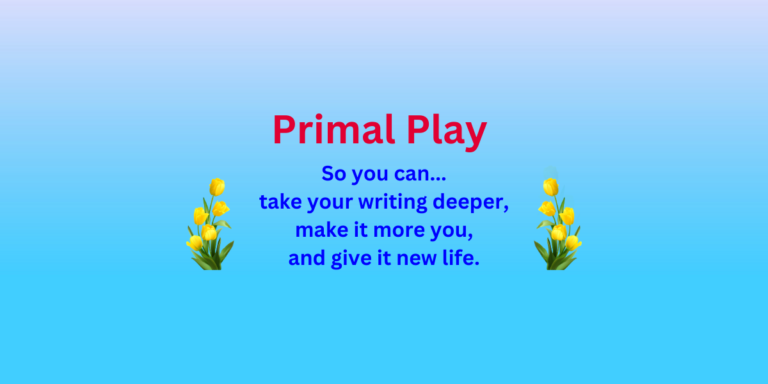1.1 Once upon a time—but not anymore
The community of writers has come a long way.
I remember when I started out, this was decades ago, there were so many famous authors preaching the gospel of struggle…
Writing is difficult, always difficult, even torture, and it never gets better.
They were…
Catastrophizing.
At the same time, those authors liked to tell us how special we writers are…
We’re good at observing, we take in every detail, we feel deeply, we understand human psychology in a way other people don’t.
This is…
Romanticizing.
But why this self-praise? Where does it come from? I’m thinking it might be compensation…
If I have to suffer, at least I get to feel special.
In fact, just because I’m a writer, I’m one of the most special people in the world. All I have to do is jot down sentences on a page and I get to be a member of this elite tribe of creatives who, because many of us are good with words, can lavish ourselves with self-congratulations.
But the worst of it was when these authors started…
Romanticizing their catastrophizing.
Like…
I’m special because I’m suffering.
If you believe that, why would you ever want to let go of your suffering? Why wouldn’t you want to suffer even more so you can be even more special?
But…
That was then and this is now.
The internet is such a mixed bag. It’s both a blessing and a curse. But here are three blessings it’s brought the writing community…
1. You can publish your work online weekly even daily and get immediate feedback.
No more waiting years to publish and then get a response from a large number of readers.
Now you can publish on your own blog or Medium or Substack or lots of other platforms, which means you can get lots more useful feedback and make much faster progress.
2. You get to be in direct, personal, vigorous, even intimate conversation with readers.
Of course, the comments section of some platforms is a zoo, but you can create a community of followers who appreciate you and with their response to your writing help you get better and better.
3. Writers are in constant conversation with each other.
Writers are a community in a way they never used to be. They give each other support. The old image of writers working in lonely isolation, just doesn’t haven’t to be true anymore, not at all.
Add these up and…
Writing is a hell of a lot more fun for an awful lot more people than it used to be.
The community of writers, as a whole, has become proactive and taken charge and skirted around the traditional gatekeepers and made the writing life so much better. Definitely something to appreciate and celebrate.
Now what about this site? It’s part of that positive trajectory.
But it’s not comprehensive. I’m not a writing teacher or any kind of how-to guru. It’s just about one thing I discovered want to share.
And it…
Started with a surprise.
I had spent years working with abused kids, and one day I happened on a book about play therapy and started reading the stories in it. And then re-reading them again and again, because…
I love these stories. I just love them.
I’m not talking about casual, easygoing therapy that stays on the surface.
What inspires me is the deep kind where the therapist uses play to help kids deal with the trauma of abuse and neglect and with the daily struggle of living in a seriously dysfunctional family.
I call this…
Primal-play therapy.
Primal because it goes deep. And it deals with the toughest issues.
Once I got hooked, primal play started showing up in my writing like a puppy who wouldn’t leave me alone, “Come on, let’s have some fun.”
So then…
I got serious about play.
And I got strategic. I started bringing specific play therapy techniques over into my writing. I ran experiments to see what helped and what didn’t. Actually all of it helped. And soon I was calling this…
Primal-play writing.
And now it means the world to me. Here’s why…
If you’ve looked at my Asking book, you know that I’m on a mission to upgrade love, which I believe is as big a challenge as humans could ever take on.
As part of this mission, I do deep dives into the human psyche. I go down to the bottom of the human operating system which is treacherous territory where you come face to face with the source of human evil.
So the issues I focus on couldn’t be more serious. But primal–play works for me. It keeps me going against the odds. It lifts me up on my hardest days.
And I’m thinking, if it works for the intense writing I do, maybe it could work for all kinds of writing.
I believe that if you care deeply about writing, if it’s your gift, if it’s how you express yourself, if it’s a core part of your identity…
Then you deserve to have a happy relationship with it.

